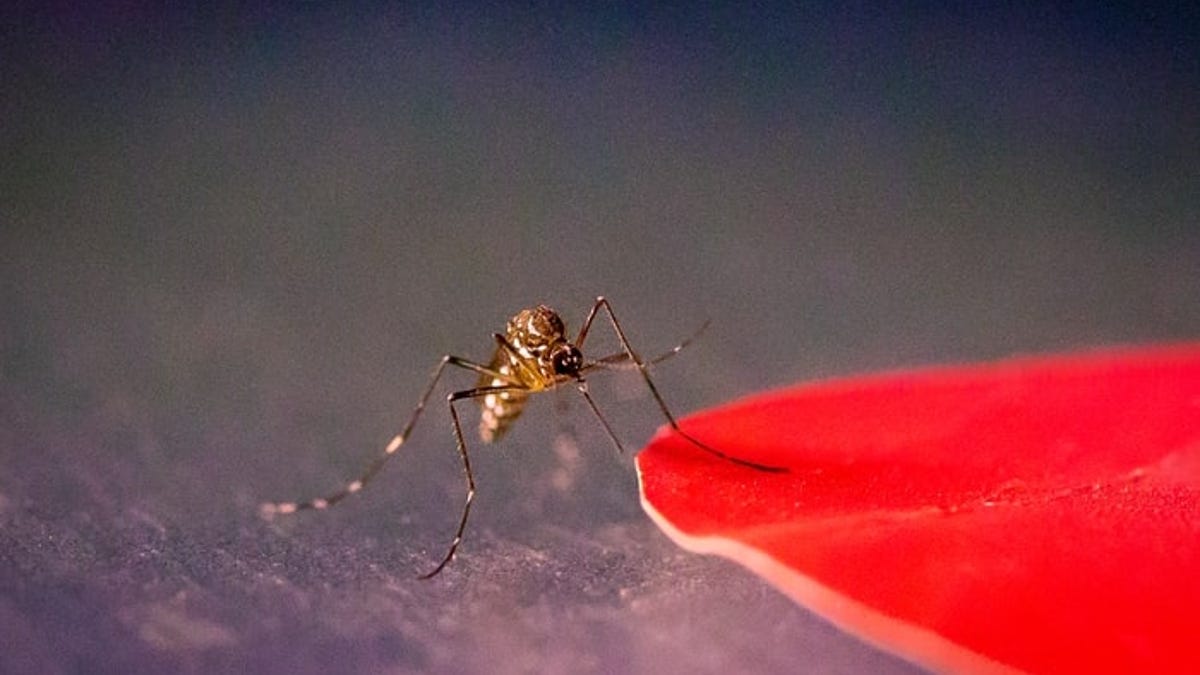You might be able to hide from mosquitoes by avoiding the color red
Research shows you could avoid a bug buffet by filtering out certain colors or wearing specific clothes.

If you've ever felt like a streetlamp on a humid day, imperiled by mosquitos that appear to be obsessed with you, you might want to rethink your wardrobe.
According to a paper published Friday in the journal Nature Communications, after catching a whiff of human breath, the pesky bloodsuckers scan the perimeter for victims by pinpointing certain colors: red, orange, black and cyan. You're likely better off draping yourself in shades of green, purple, blue and white.
"Imagine you're on a sidewalk and you smell pie crust and cinnamon," Jeffrey Riffell, a biologist at the University of Washington and senior author of the study, said in a statement. "That's probably a sign that there's a bakery nearby, and you might start looking around for it. Here, we started to learn what visual elements mosquitoes are looking for after smelling their own version of a bakery."
Riffell and other researchers tested how mosquitoes react to various tones after being exposed to carbon dioxide – what we breathe out every time we exhale. The team first placed into small chambers female Aedes aegypti mosquitos, known to transmit dengue, yellow fever, chikungunya and Zika virus. Females were selected because, unlike males, they're the vampire-y ones that ruin tropical vacations by feasting on our blood.
To begin, the crew watched how the caged critters react to stimuli such as colored dots, in the absence of odors. Basically, they didn't. Then the researchers repeated the process with a spritz of CO2. In that iteration, with synthetic human breath, the mosquitos were super attracted to red, orange, black and cyan but didn't bat an eye when it came to green, purple, blue and white.
But mosquitos may not be parsing colors the way you might assume. Scientists aren't sure the bugs can "see" color the way we do – similarly to how we can't "smell" CO2 the way they can. However, the colors to beware of all have an objective commonality: longer wavelengths on the visible spectrum.
That brings us to some bad news.
Human skin, regardless of pigment, gives off long wavelengths similar to those of red-orange hues. "One of the most common questions I'm asked is 'What can I do to stop mosquitoes from biting me?'" Riffell said. "I used to say there are three major cues that attract mosquitoes: your breath, your sweat and the temperature of your skin. In this study, we found a fourth cue: the color red, which can not only be found on your clothes, but is also found in everyone's skin."
In fact, Riffell experimented with that bit as well by placing a human hand in a CO2-heavy mosquito cage with, and without, a green glove. Sure enough, the green glove was enough to function as a disguise, leaving the bugs uninterested.
There's also somewhat bittersweet news. Female mosquitos can be kind of "colorblind" in the presence of CO2 if their genetics code such a characteristic. For instance, the team says there's a mutant strain of the bugs that can't "see" the delicious, long wavelengths.
Fingers crossed, the next time you try out a bold red lipstick or an all-black-everything look, you come across either a mutant menace or just one oblivious to the tantalizing scent of your breath.

